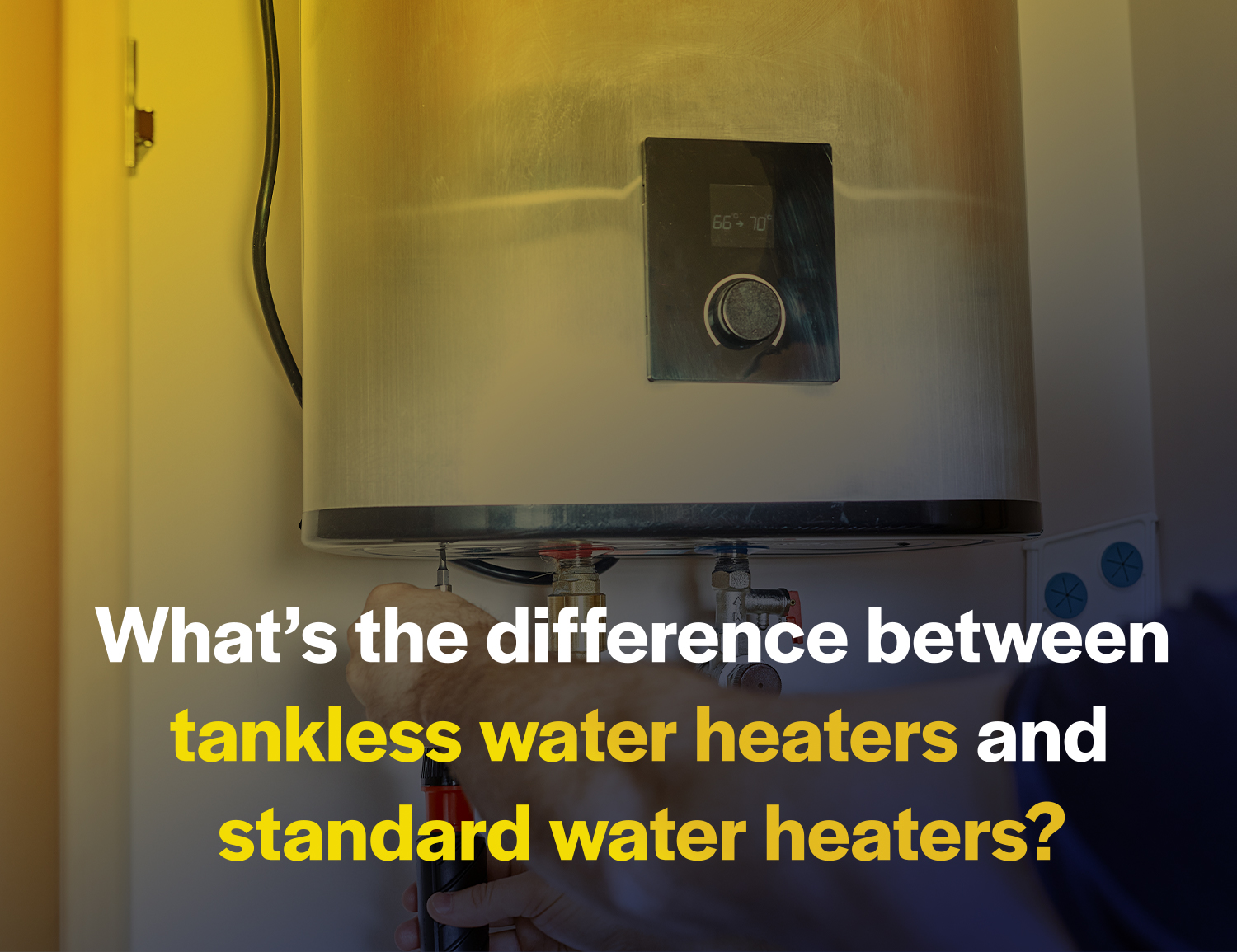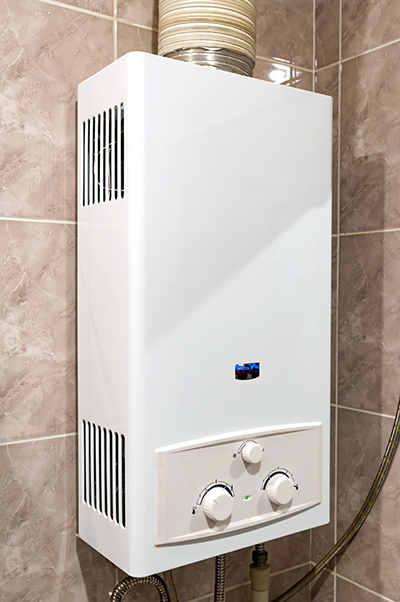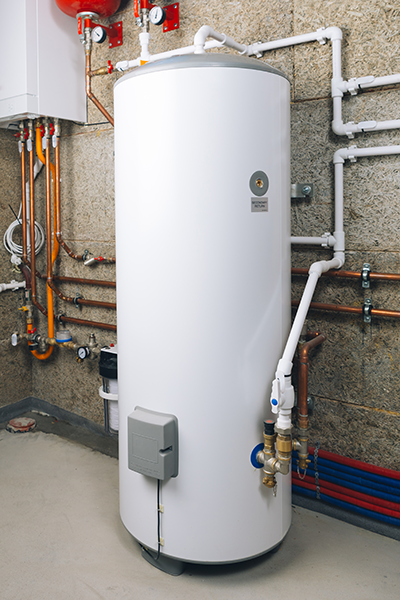
The water heater works hard to supply hot water for your home. It’s essential to recognize the different types of water heaters available on the market and identify which type of water heater you have installed or which type you should invest in. Each offers unique advantages and considerations, making the choice between them a crucial decision for homeowners. Let’s delve into the key differences between tankless and standard water heaters, exploring their respective features, benefits, and considerations to help you make an informed decision for your home.
Tankless Water Heaters
Tankless water heaters, also known as on-demand or instantaneous water heaters, differ significantly from their traditional counterparts in terms of design and functionality. Instead of storing hot water in a tank for later use, tankless water heaters heat water directly as it passes through the unit, providing a continuous supply of hot water on demand.
Features and Benefits of Tankless Water Heaters:
- Space-Saving Design: Tankless water heaters are compact and wall-mounted, saving valuable space compared to bulky tank-style water heaters. Their streamlined design makes them ideal for small homes, apartments, or installations where space is limited.

- Energy Efficiency: Tankless water heaters operate more efficiently than standard water heaters, as they only heat water when needed. By eliminating standby heat loss associated with traditional tank-style heaters, tankless units can significantly reduce energy consumption and lower utility bills over time.
- Endless Hot Water Supply: With a tankless water heater, you’ll never run out of hot water, even during periods of high demand. Since water is heated on demand, there’s no waiting time for the tank to refill and reheat, ensuring a continuous supply of hot water for showers, baths, and household chores.
- Longer Lifespan: Tankless water heaters typically have a longer lifespan than standard water heaters, lasting up to 20 years or more with proper maintenance. This longevity can translate to cost savings over time, as you’ll avoid the expense of replacing the unit as frequently as you would with a traditional water heater.
- Reduced Risk of Water Damage: Unlike traditional water heaters, which can leak or rupture if the tank fails, tankless water heaters pose a lower risk of water damage due to their absence of a storage tank. This can provide peace of mind for homeowners concerned about potential water-related disasters.
Standard Water Heaters
Standard water heaters, also known as tank-style or storage water heaters, have been a staple in homes for decades, providing reliable hot water for bathing, cooking, and cleaning. These heaters store a reservoir of hot water in a large tank, which is continuously heated to maintain a consistent temperature.
Features and Benefits of Standard Water Heaters:
- Lower Initial Cost: Standard water heaters are generally more affordable to purchase and install compared to tankless water heaters. Their simplicity and widespread availability contribute to their lower upfront cost, making them an attractive option for budget-conscious homeowners.

- Familiarity and Reliability: Standard water heaters have a long-standing track record of reliability and performance, making them a familiar choice for many homeowners. Their straightforward operation and maintenance requirements make them easy to understand and maintain, appealing to those who prefer a tried-and-true solution.
- Suitable for Large Families: For households with high hot water demand, such as large families or multi-person households, standard water heaters with large storage tanks can provide ample hot water reserves to meet everyone’s needs without interruption.
- Simple Installation and Retrofitting: Installing or replacing a standard water heater is relatively straightforward, especially if you’re replacing an existing unit. Many homes are already equipped with the necessary infrastructure, such as gas lines or electrical wiring, to accommodate a standard water heater installation.
- Compatible with Existing Plumbing: Standard water heaters are compatible with existing plumbing systems and fixtures, requiring minimal modifications for installation. This makes them a convenient choice for homeowners looking to upgrade or replace their existing water heater without significant plumbing alterations.
Tankless vs Standard – Key Differences and Considerations
Now that we’ve explored the features and benefits of tankless and standard water heaters, let’s examine the key differences and considerations that can influence your decision:
- Hot Water Demand: Tankless water heaters are ideal for households with moderate to low hot water demand, as they provide a continuous supply of hot water on demand. Standard water heaters are better suited for households with high hot water demand or simultaneous usage, thanks to their larger storage capacity.
- Energy Efficiency: Tankless water heaters are more energy-efficient than standard water heaters, as they eliminate standby heat loss and only heat water when needed. If energy efficiency is a top priority for you, a tankless water heater may offer significant cost savings over time.
- Installation and Retrofitting: Installing a tankless water heater may require modifications to your home’s plumbing and electrical systems, especially if you’re upgrading from a standard water heater. Standard water heaters are typically easier to install and retrofit, as they can often be directly swapped with an existing unit.
- Space Constraints: If you’re dealing with limited space or have aesthetic concerns, a tankless water heater’s compact design and wall-mounted installation may be preferable. Standard water heaters, while larger and bulkier, can be tucked away in utility closets, basements, or garage spaces.
- Initial Cost vs. Long-Term Savings: While tankless water heaters have a higher upfront cost compared to standard water heaters, their energy efficiency and longer lifespan can result in significant long-term savings on energy bills and maintenance expenses.
Choosing between a tankless water heater and a standard water heater ultimately depends on your household’s hot water needs, budget, and preferences. Tankless water heaters offer energy efficiency, space-saving design, and endless hot water supply, making them an attractive option for many homeowners. However, standard water heaters provide familiarity, reliability, and lower initial cost, making them a practical choice for those seeking a straightforward solution.
Before making a decision, carefully consider your hot water usage patterns, available space, and budgetary constraints. Consult with a licensed plumber or HVAC specialist to assess your home’s suitability for either type of water heater and determine the best option for your specific needs. With the right choice, you can enjoy reliable hot water and enhanced comfort in your home for years to come.


